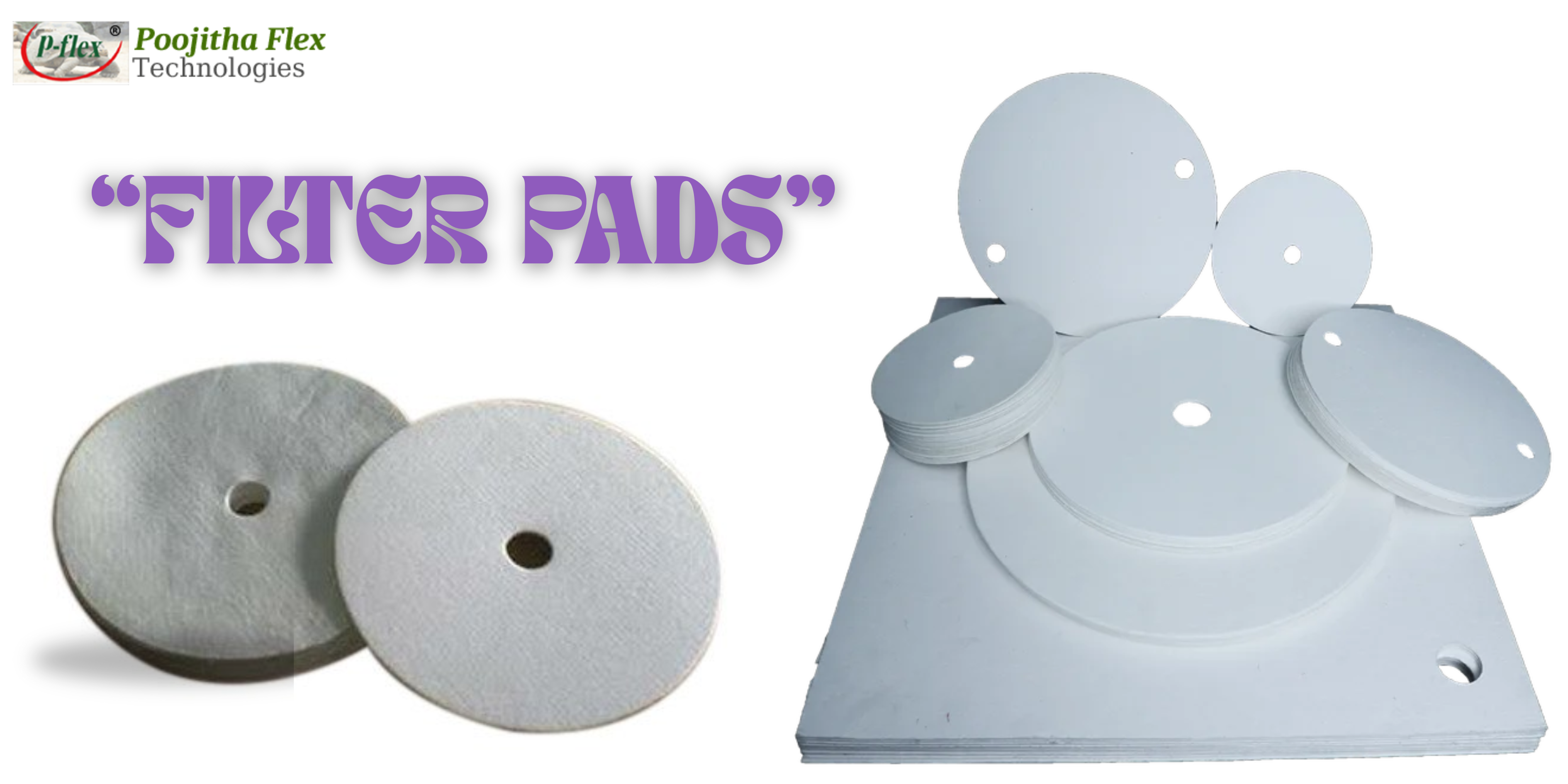
In modern manufacturing environments, filtration plays a critical role in product quality, process integrity, and workplace safety. Whether it’s for separating contaminants from liquids, purifying air, or ensuring clean processing conditions, filter pads are at the heart of many industrial filtration systems. Selecting the right type of filter pad can greatly influence operational efficiency, product consistency, and equipment longevity.
Filter pads are flat, fibrous sheets engineered to trap unwanted particles from liquids, gases, or air. Positioned within filtration units or housings, they are used across a range of industries to remove contaminants that could compromise the manufacturing process. These pads operate through depth filtration, where particles are retained throughout the media thickness, resulting in effective separation of solids from fluids or gases.
Filter pads are versatile and find application across numerous sectors:
These are made from purified plant fibers and offer excellent clarity and retention, especially in applications where chemical interaction needs to be minimal. They're widely used in beverage bottling and pharmaceutical liquids.
Synthetic and robust, polyester pads are ideal for air filtration, HVAC systems, and general-purpose applications. Their strength and reusability make them a cost-effective option for many factories.
Designed to remove odor, VOCs, and organic vapors, these pads are suitable for environments like cleanrooms, labs, and food processing units where odor control is vital.
These pads can tolerate higher temperatures and aggressive chemicals. They're preferred in metal processing, chemical plants, and where high airflow and filtration precision are needed.
When selecting filter pads, compatibility with your process requirements is crucial. The following parameters should be evaluated:
Employing the correct filter pad brings several performance advantages:
Proper handling and timely replacement of filter pads are key to maintaining filtration efficiency:
Regular inspections should be conducted to check for saturation, clogging, or material breakdown.
Pads should be installed securely with proper seals to prevent bypassing of contaminants.
Replacement intervals depend on the type of media filtered and the process load, but early signs like reduced flow or pressure drops should be addressed promptly.
Clean storage and handling help preserve pad integrity before use.
Offering a wide range of industrial-grade filter pads, Poojitha Flex Technologies delivers solutions for diverse filtration requirements. From high-flow processes to precision-sensitive operations, each product is crafted with consistent quality and long-lasting performance.
Customized sizing, high-quality materials, and industry-specific expertise ensure each customer gets exactly what they need to enhance their system's reliability and output. With the right partner and technical guidance, companies can turn filtration into a performance advantage.
1. What are filter pads used for in manufacturing?
Filter pads are used to remove impurities from liquids, gases, or air in various manufacturing processes. They help maintain product quality, ensure system efficiency, and support regulatory compliance.
2. How do I choose the right filter pad material for my application?
The right filter pad material depends on factors such as the type of media being filtered, operating temperature, pressure, chemical exposure, and required filtration efficiency (micron rating).
3. Can filter pads be reused or cleaned?
Some filter pads, especially synthetic ones like polyester, can be cleaned and reused a few times depending on the application. However, pads used in critical or hygiene-sensitive industries are typically single-use for safety.
4. What is the difference between cellulose and polyester filter pads?
Cellulose pads are natural fiber-based and suited for fine liquid filtration in food and pharma. Polyester pads are synthetic, more durable, and ideal for air filtration or general industrial use.
5. How often should filter pads be replaced?
Replacement frequency depends on usage, load, and media type. Regular inspections should be done, and pads should be replaced when there's reduced flow, clogging, or visible damage.
6. Are there industry-specific filter pad recommendations?
Yes, food and pharma industries often use cellulose or FDA-compliant pads, while metalworking or chemical plants prefer heat-resistant materials like fiberglass or chemically resistant synthetics.
Copyright © 2026 Poojitha Flex Technologies All Rights Reserved.